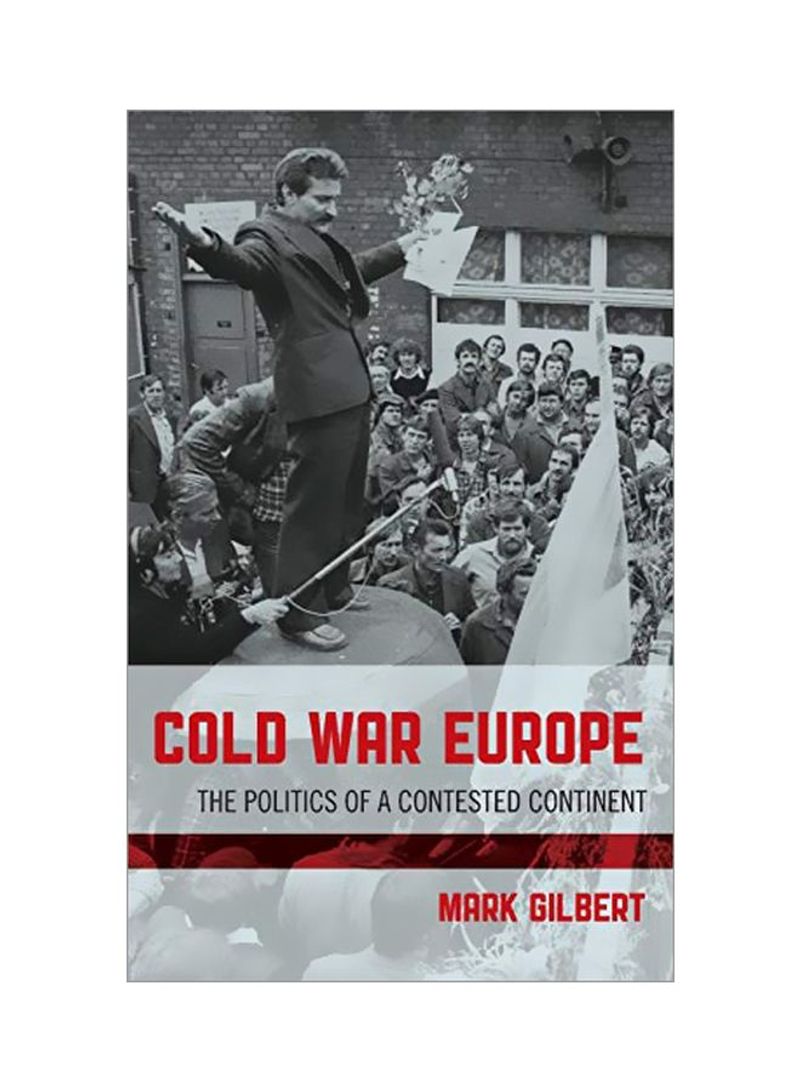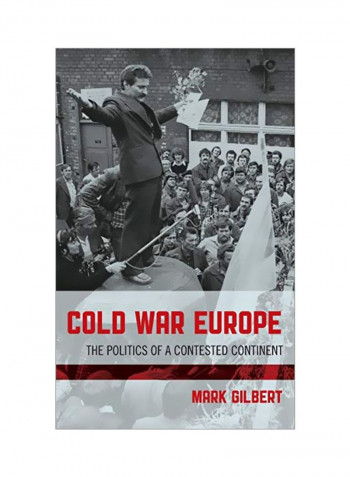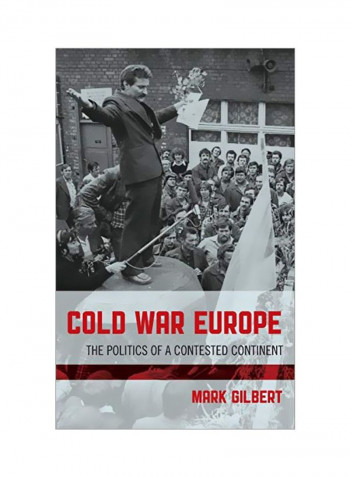Cold War Europe: The Politics Of A Contested Continent Hardcover
Recommend
Sort by
Rating
Date
Specifications
Author 1
Mark Gilbert
Book Description
This compelling history of Europe's Cold War follows the dramatic arc of the conflict that shaped the development of the continent and defined world politics in the second half of the twentieth century. Focusing on European actors and events, Mark Gilbert traces the onset of the Cold War, the process of Stalinization in the Soviet bloc, and the difficulties of legitimation experienced by communist regimes in Hungary, Poland, and East Germany even after Stalin's death. He also shows how Washington's leadership and worldview was contested in Western Europe, especially by Great Britain and French president Charles de Gaulle. The book charts the growing weakness of the communist system in Eastern Europe and the economic and moral reasons for the system's eventual collapse. It highlights the central role of European leaders in the process of detente and in the diplomatic endgame that concluded the Cold War in 1990. Rather than simply a strategic standoff between the superpowers, Gilbert argues, the Cold War was a social and ideological conflict that transformed Europe from Lisbon to Riga. Fast-paced and readable, this political, intellectual, and social history illuminates a conflict that continues to resonate today.
ISBN-13
9781442219847
Language
English
Publisher
Rowman And Littlefield
Publication Date
26 December 2014
Number of Pages
340
About the Author
Mark Gilbert is resident professor of international history at SAIS Europe, the Bologna Center of the Paul H. Nitze School of Advanced International Studies, Johns Hopkins University. He is the 2018 Chair of Jury for the Cundill History Prize.
Editorial Review
The inhabitants of the `common European house' seem once again to be dividing into two camps: those who live in free, prosperous and secure societies, and those who are subject to manipulation, repression and, above all, neglect. In that context, Mark Gilbert's concise history of how Europe lived through the Cold War and its end from 1945 to 1992 provides a welcome opportunity to refresh recollections and reflect on parallels and differences. . . .Along the way, Gilbert skilfully develops a few major themes. . . with an eye for gripping detail. * Survival: Global Politics and Strategy * The book illuminates an important and sometimes forgotten aspect of the conflict. . . . Gilbert's analysis demonstrates the centrality of European actors to a variety of Cold War events. * Journal of Contemporary History * Mark Gilbert writes with clarity and verve, and the story he tells is a dramatic, Europe-wide one that embraces both Western and Eastern European countries. This allows him to reveal the deeper social and economic layers of the Cold War conflict as it played out across the continent, on both sides of the Iron Curtain. -- Anne Deighton, University of Oxford In this valuable account of the Cold War as European history, Mark Gilbert provides a crisp introduction to the politics of European governments and parties- East and West-in a divided continent. Thus he retrieves, and reclaims, the Europeans' own agency in the Cold War-for good and bad. The paradoxical conclusion of this wide-ranging international history of politics is that the historic defeat of Soviet communism is ultimately premised on economics, on the superior efficacy of capitalism upon the socialist command economy. -- Federico Romero, European University Institute This outstanding overview of the huge and complex history of the Cold War puts Europe back where it belongs, at its very center, as this was not a bipolar contest between two superpowers. With immense erudition, Mark Gilbert presents a beautiful narrative and well-balanced analysis, giving due importance to actors and developments on both sides of the Iron Curtain. Gilbert brings events to life in snapshots, with colorful references to films, novels, and art that capture the essence of this huge ideological conflict. A powerful evocation of an era. -- Beatrice Heuser, University of Reading



